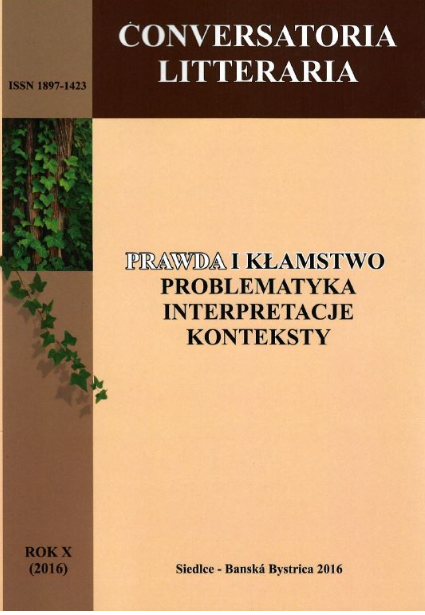INDOCTA? IGNOTA? SIMPLEX HOMO? O PRAWDZIE I FAŁSZU W WIZERUNKU WŁASNYM HILDEGARDY Z BINGEN
Keywords:
Middle Ages, mystic, testimonial form, discursive strategy, educationAbstract
The concepts of truth and falsehood, as well as those of reality and fiction, are universally considered to be opposites, although in the case of literature, or, more broadly speaking, culture this may not be so self-evident. The question of truth and falsehood/reality and fiction is, in the case of Hildegard of Bingen, a complex and multilayered phenomenon. Hildegard's perception is deeply root-ed in the mentality of her times and, while it refers to the established reservoir of the contemporaneous literary practices, it is also to a significant degree pointing towards new perspectives. The result is that Hildegard's works reflect a very unique interrelation of the oppositions of truth to falsehood and reality to fiction.




